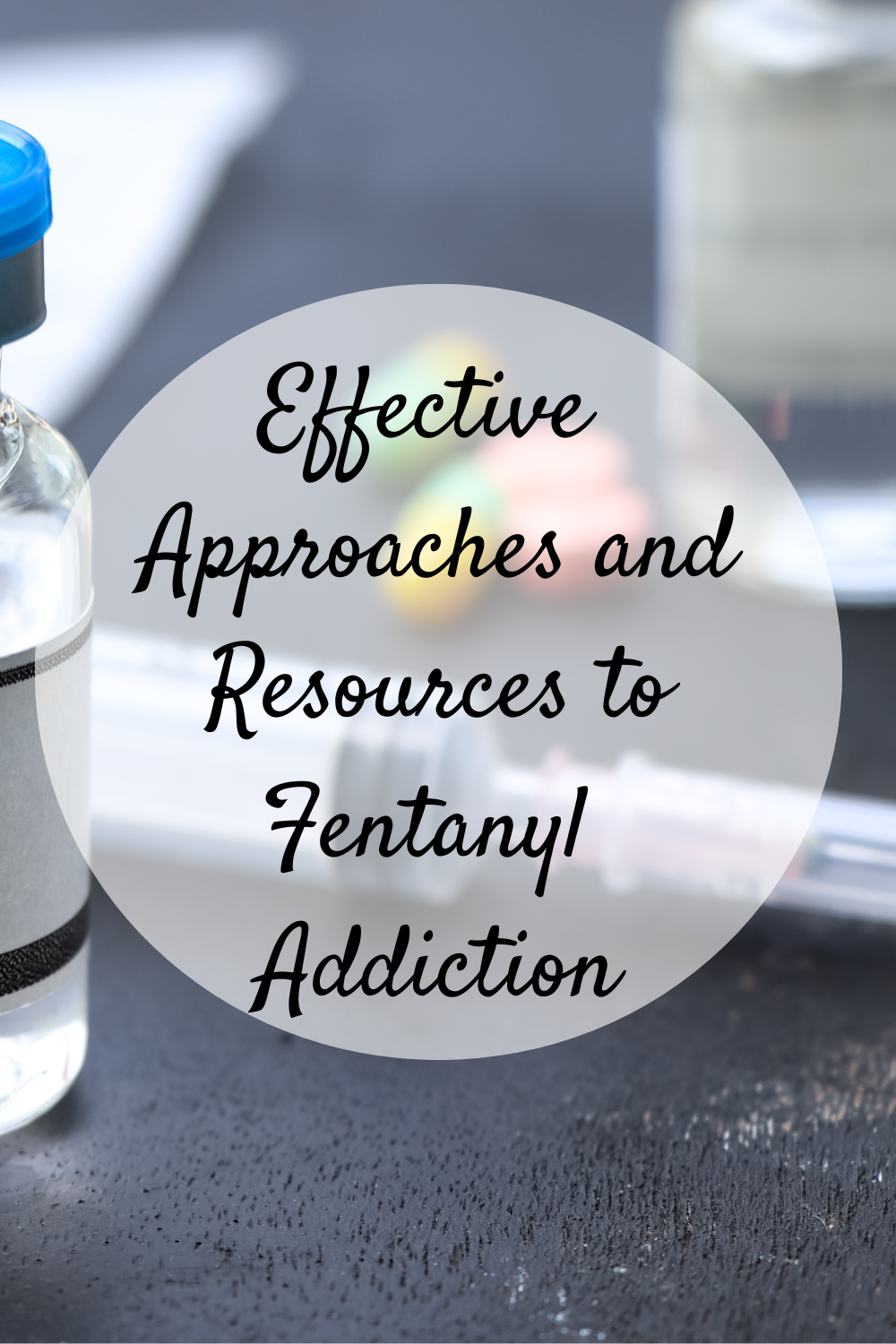
Addiction to fentanyl, a powerful opioid pain medication, is a growing concern in many communities. Fentanyl addiction can have devastating effects on individuals and their families, leading to physical health complications, mental health challenges, and even death. Thankfully, there are effective approaches and resources available to help those struggling with fentanyl addiction. In this post, we will explore some of these approaches and resources.
Understanding Fentanyl Addiction
Fentanyl is an opioid analgesic that is commonly prescribed for severe pain management. It is 50 to 100 times stronger than morphine and 30 to 50 times more potent than heroin. While it can provide much-needed relief for those suffering from chronic pain conditions or recovering from surgery, fentanyl has a high potential for misuse and addiction. Sadly, fentanyl is also available illicitly through the drug market. It may be mixed into other drugs like cocaine or heroin without the user’s knowledge, leading to unintended overdose and death. The potency of fentanyl makes it incredibly dangerous, as the risk of overdose is significantly increased.
Approaches to Treat Fentanyl Addiction
When it comes to fentanyl addiction treatment in Los Angeles and other areas, there are several evidence-based approaches that have shown positive outcomes:
Medication-Assisted Treatment (MAT)
MAT combines medications with counseling and behavioral therapies to treat substance use disorders effectively. One common medication used in MAT programs for opioid addiction is buprenorphine/naloxone (often known by its brand name Suboxone). Buprenorphine helps ease withdrawal symptoms while blocking the euphoric effects of opioids if relapse occurs.
Cognitive-Behavioral Therapy (CBT)
CBT focuses on helping individuals identify and change problematic behaviors and thought patterns associated with their addiction. This form of therapy can be highly effective in helping individuals develop healthier coping mechanisms and prevent relapse.
Motivational Enhancement Therapy (MET)
MET aims to evoke an individual’s internal motivation and desire to change. Through non-confrontational conversations, therapists support individuals in exploring their values and goals while highlighting how the addiction undermines them.
Individual and Group Counseling
Individual counseling provides one-on-one support for individuals in their journey toward recovery. Group counseling offers a supportive environment where individuals can share their experiences, learn from others facing similar struggles, and build a supportive network.
Resources for Fentanyl Addiction Support
In addition to these treatment approaches, there are various resources available to support those struggling with fentanyl addiction:
Support Groups
Support groups like Narcotics Anonymous (NA) provide a safe space for individuals to receive ongoing support from peers who understand their experiences. These groups often follow a 12-step format that emphasizes personal responsibility and accountability while fostering hope and connection with others in recovery.
Hotlines and Helplines
National helplines provide immediate assistance for those struggling with fentanyl addiction or seeking help on behalf of a loved one. Trained professionals can provide information, resources, referral services, and crisis intervention when needed.
Inpatient and Outpatient Treatment Centers
Inpatient treatment centers offer comprehensive care within a residential setting where individuals can focus solely on their recovery. Outpatient treatment centers provide flexible options that allow individuals to attend therapy sessions while continuing their daily routines.
Community-Based Programs
Many communities have programs specifically designed to address substance use disorders, including fentanyl addiction. These programs often include outreach services, harm reduction initiatives such as needle exchanges or distribution of naloxone (an opioid overdose reversal medication) and collaborations with local healthcare providers.
Strategies for Relapse Prevention
Education and Awareness
One of the essential aspects of relapse prevention is education and awareness. By understanding fentanyl addiction, its impact on physical and mental health, and the signs of relapse, individuals can develop a proactive approach to managing triggers and maintaining their recovery.
Developing Coping Skills
Learning healthy coping strategies is crucial in preventing relapse. This may involve exploring stress management techniques, mindfulness practices, relaxation exercises, engaging in hobbies or activities that bring joy and fulfillment, building a support network of positive relationships, and developing a strong self-care routine.
Conclusion
Fentanyl addiction is a serious concern requiring effective approaches and comprehensive resources for treatment and support. By understanding the various treatment approaches available, such as medication-assisted treatment, cognitive-behavioral therapy, motivational enhancement therapy, and individual/group counseling options combined with community-based resources like hotlines and helplines, support groups, and treatment centers, individuals struggling with fentanyl addiction can find the help they need.





Leave a Reply